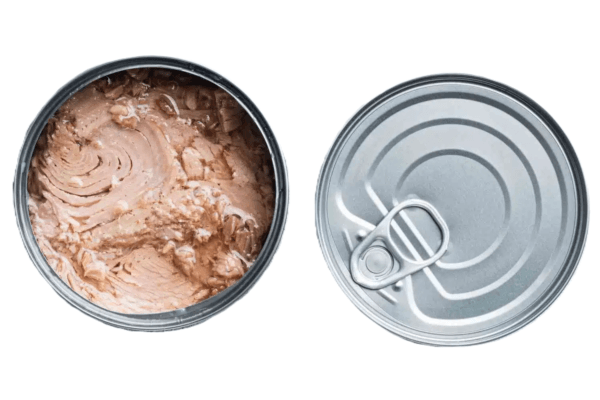The Hidden Dangers: Botulism Risk and the Recent Canned Tuna Recall at Costco

Unveiling the Threat: Botulism risk canned tuna recall costco
In a world where convenience often trumps caution, the recent canned tuna recall at Costco has sent shockwaves through households. The lurking menace? Botulism. This article delves into the dual facets of this alarming situation, shedding light on both the positive and negative sides, and why it matters to you.
What is Botulism?
Botulism, a rare but potentially fatal illness, is caused by a toxin produced by the bacterium Clostridium botulinum. This toxin can thrive in improperly canned or preserved foods, making canned tuna a potential hazard if not handled correctly.
The Recall: A Necessary Precaution
Costco, a giant in the retail industry, recently issued a recall for certain batches of canned tuna due to concerns over botulism contamination. This proactive measure, while inconvenient for consumers, underscores the company’s commitment to safety. But what does this mean for you?
The Positive Side: Safety First
- Consumer Protection: The recall is a testament to Costco’s vigilance in ensuring consumer safety. By swiftly addressing the issue, they prevent potential health risks.
- Awareness: Such recalls raise public awareness about food safety, encouraging consumers to be more cautious and informed about the products they purchase.
The Negative Side: Inconvenience and Cost
- Inconvenience: For many, the recall means returning products, seeking refunds, or finding alternatives, which can be a hassle.
- Financial Impact: Recalls can be costly for both the company and consumers. The financial burden of replacing or refunding products can be significant.
Understanding the Risks: Botulism Symptoms and Prevention
Symptoms of Botulism
Botulism can manifest in various ways, often starting with weakness, dizziness, and dry mouth. As the toxin spreads, it can lead to more severe symptoms such as:
- Blurred vision
- Difficulty swallowing
- Muscle weakness
- Respiratory issues
Prevention Tips
- Proper Storage: Always store canned foods in a cool, dry place. Avoid cans that are bulging, leaking, or damaged.
- Check Expiry Dates: Regularly check the expiry dates on canned goods and consume them before they expire.
- Follow Recalls: Stay informed about product recalls and follow the instructions provided by retailers.
Botulism Risk Prompts Major Canned Tuna Recall at Costco
In recent news, a significant recall has been issued for several brands of canned tuna sold at major retailers, including Costco, due to the risk of botulism contamination. This recall has raised concerns among consumers and highlighted the importance of food safety measures in the canned food industry.
Understanding Botulism
Botulism is a rare but serious illness caused by a toxin produced by the bacterium Clostridium botulinum. This toxin can cause severe food poisoning, leading to symptoms such as difficulty breathing, muscle paralysis, and even death if not treated promptly. The bacteria thrive in low-oxygen environments, making improperly canned foods a potential breeding ground for contamination.
The Recall Details
The recall affects canned tuna products sold under various brand names, including Genova, Van Camp’s, H-E-B, and Trader Joe’s. The issue was identified when the manufacturer, Tri-Union Seafoods, discovered a defect in the “easy open” pull lids of the cans. This defect could lead to leakage or contamination with Clostridium botulinum
The affected products have specific retail codes and best-by dates in 2027 and 2028. Consumers are advised to check their pantries and return any recalled products to the store for a full refund. It is crucial not to consume the recalled tuna, even if it appears or smells normal, as botulism toxin is not detectable by sight or smell
Impact on Consumers
The recall has caused significant concern among consumers who rely on canned tuna as a staple in their diets. Canned tuna is a popular choice due to its convenience, long shelf life, and nutritional benefits. However, the potential risk of botulism has led many to reconsider their purchasing decisions and seek alternative sources of protein.
Food Safety Measures
This incident underscores the importance of stringent food safety measures in the manufacturing and packaging of canned foods. The Food and Drug Administration (FDA) has strict guidelines for canning processes to prevent contamination. However, manufacturing defects can still occur, highlighting the need for continuous monitoring and quality control.
Consumers can take several steps to protect themselves from foodborne illnesses:
- Check Recall Notices: Stay informed about food recalls by regularly checking the FDA’s recall notices and alerts.
- Inspect Packaging: Before purchasing canned foods, inspect the packaging for any signs of damage or defects.
- Proper Storage: Store canned foods in a cool, dry place to prevent spoilage and contamination.
- Follow Expiry Dates: Always check the expiry dates on canned foods and avoid consuming products past their best-by dates.
The Role of Retailers
Retailers like Costco play a crucial role in ensuring the safety of the products they sell. In response to the recall, Costco has taken swift action to remove the affected products from their shelves and notify customers. The company has also provided clear instructions on how to return the recalled products for a refund.
Retailers must maintain transparent communication with consumers during such incidents to build trust and ensure public safety. By promptly addressing recalls and providing accurate information, retailers can help mitigate the impact of foodborne illness outbreaks.
The Economic Impact
The recall has significant economic implications for both the manufacturer and retailers. Tri-Union Seafoods faces potential financial losses due to the recall, including the cost of removing and replacing the affected products, as well as potential legal liabilities. Retailers like Costco may also experience a temporary decline in sales of canned tuna as consumers become more cautious.
Additionally, the recall can affect the supply chain, leading to disruptions in the availability of canned tuna products. Manufacturers may need to implement additional quality control measures, which could increase production costs and impact pricing.
FAQs About the Canned Tuna Recall
What should I do if I have purchased the recalled tuna?
If you have purchased the recalled tuna, return it to Costco for a refund. Do not consume the product.
How can I stay updated on food recalls?
You can stay updated on food recalls by subscribing to alerts from the FDA or checking the recall section on Costco’s website.
Is all canned tuna at risk?
No, only specific batches identified in the recall are at risk. Always check the batch numbers and expiry dates provided in the recall notice.
External Links
- Canned Tuna Sold at Trader Joe’s, Costco, H-E-B Recalled for Botulism Risk
- Botulism Risk Prompts Recall Of Canned Tuna At Costco, Walmart, Trader Joe’s: Full List Of Affected Products
- Canned tuna sold nationwide at Costco, Trader Joe’s, Publix recalled due to botulism risk
Top 5 Pros and Cons of Flying with Breeze Airlines: A Comprehensive Guide


[…] International Economic Accounts […]
Wonderful web site Lots of useful info here Im sending it to a few friends ans additionally sharing in delicious And obviously thanks to your effort